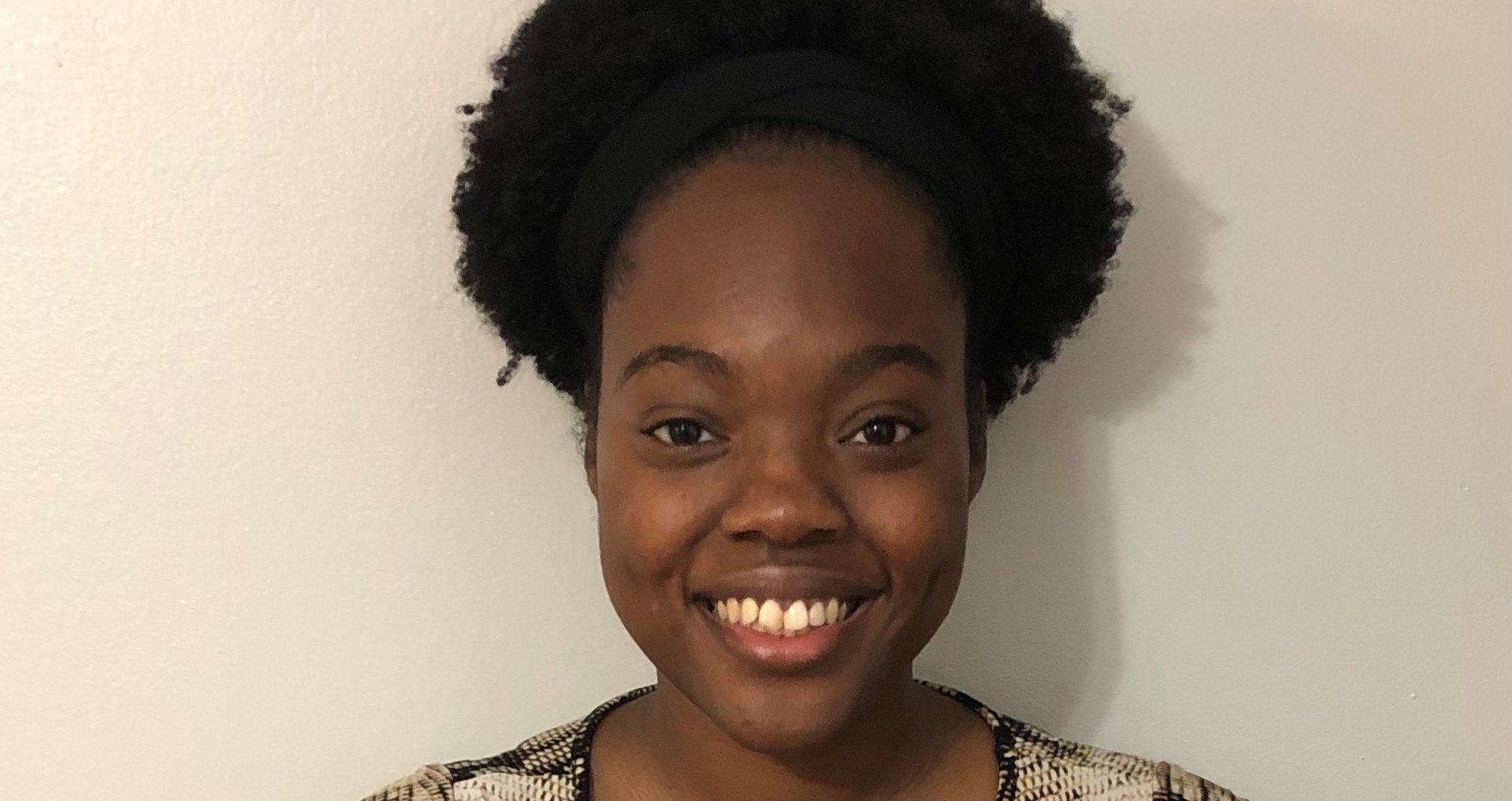
A Spalding University psychology doctoral student who aspires to provide therapy to Black people involved in the criminal justice system – and to understand how their lives have been affected by racial trauma – has been chosen for a prestigious fellowship from the American Psychological Association.
Lashawn Ford, a second-year student in the School of Professional Psychology’s Doctor of Clinical Psychology (PsyD) program, was informed this month that she is one of only a handful of graduate students nationwide to be selected for the APA’s Minority Fellowship Program, which provides professional and financial support to students who are training for careers that enhance psychological and behavioral outcomes of ethnic minority communities.
“When I got the news, I was very excited and surprised,” Ford said. “It was difficult to breathe for a minute.”
Ford’s PsyD concentration is forensic psychology, and she is currently participating in two Spalding practicums.
Her assessment practicum involves working with Black inmates at Luther Luckett Correctional Complex in Oldham County. She is conducting research to understand how racial trauma may contribute to persons of color becoming involved in crime and their likelihood of recidivism.
In addition, Ford is conducting her clinical therapy practicum at Spalding’s Collective Care Center – a division of the SOPP’s Center for Behavioral Health that focuses on treating race-based trauma and stress. Ford works with eight clients at the Collective Care Center, including a therapy group that processes racial trauma and microaggressions.
Ford was awarded the APA’s Interdisciplinary Minority Fellowship, which is supported by the U.S. Substance Abuse and Mental Health Services Administration. The fellowship is awarded to students ” who commit to significantly improving the quality of care provided to ethnic and racial minorities who have a mental or cooccurring mental and substance use disorder,” according to the APA.
School of Professional Psychology Chair Dr. Brenda Nash said she was “thrilled but not surprised” that Ford received the APA Minority Fellowship.
“According to APA, the awards are offered to about 5% of the hundreds of doctoral students who apply, based largely on their potential as future leaders in ethnic minority psychology,” Nash said. “Lashawn exudes such potential. She exemplifies the excellence of our PsyD program and our mission to grow students into being agents of change. I cannot wait to see how Lashawn changes the world!”
Earning the APA Minority Fellowship is the latest accomplishment in Ford’s exceptional academic career. She is a former Fulbright Scholar who earned four bachelor’s degrees (in psychology, sociology, philosophy and criminal justice) and a 3.96 GPA in four years at the University Louisville before earning her master’s at the University of Kent in England.
Her accomplishments are all the more remarkable given her personal story. Ford is a first-generation college graduate whose father was incarcerated on drug charges. She has two uncles who are currently in prison for murder. Her personal experiences have contributed to her interests in forensic psychology and race-based trauma therapy.
Ford said it is important to increase the number of African American mental health care providers.
“Unfortunately, a lot of people who are struggling with mental health are people of color, and there are not enough clinicians who look like them to help,” she said. “People of color are also disproportionate in the prisons.”
Ford said the country’s focus on racial injustice the past several months in the wake of the killings of Breonna Taylor, George Floyd and others has also raised awareness about racial trauma.
“This trauma that Black people and people of color have been experiencing all their lives is now being brought to the forefront,” Ford said. “That can be very damaging for people to realize and have to live it over and over, like, ‘Wow, I’ve been experiencing this my whole life.’ They knew it, and they’ve been living in it, but it might have been something that was more suppressed. … But like any trauma, it’s important to process it and learn strategies to help deal with it. I get to be that person for a lot of people and help them get through it.”
Ford is the second student ever from the Spalding PsyD program to earn the APA Minority Fellowship, following Steven Kniffley, a mentor of Ford’s who is now on the Spalding faculty, is the head of the Collective Care Center, and is the Associate Director of the Center for Behavioral Health. Kniffley is the person who encouraged Ford to apply for the APA fellowship.
“He’s my mentor, and he got it, and now I have it,” Ford said. “It was a really good moment to share the good news with him.”
Ford said she has enjoyed training at Spalding under a range of faculty in a range of settings – under Kniffley in the Collective Care Center, under Forensics Program Director Dr. Ida Dickie at the prison, and under Dr. DeDe Wohlfarth in cultural humility training groups – who are all carrying out a social justice mission.
“These are separate professors and clinicians who are serving the same kind of purpose but doing very different things,” Ford said. “And it’s very powerful.”